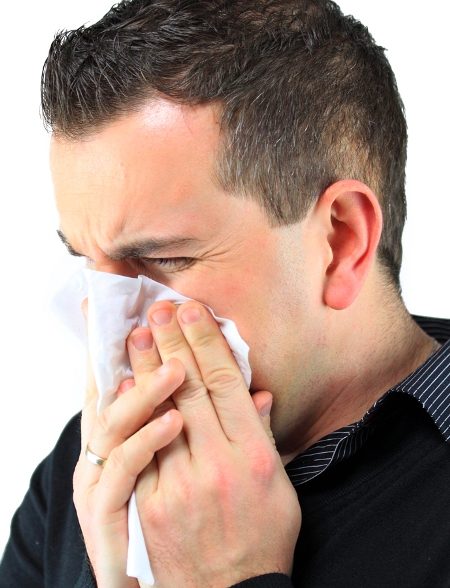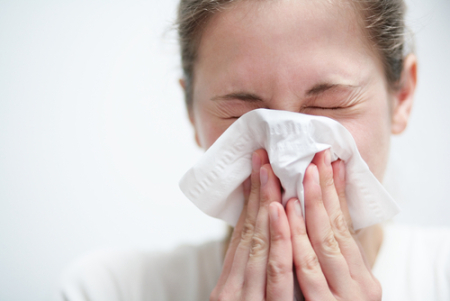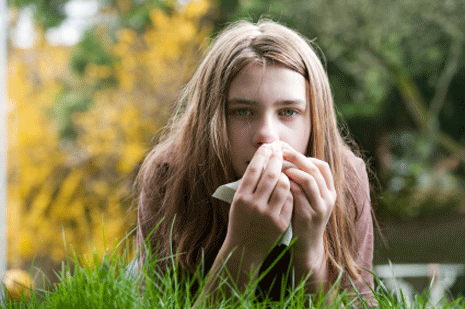
Dust allergy can be easily identified. When you are getting irritated with certain air components, then it is a sign of dust allergy. There are certain myths that are often believed regarding it such as it arises from environmental factors, exposure to pets or certain flowers. These are myths are explained away in detail below.
Dust allergy is psychological and does not exist in reality. Many people believe that dust allergy does not exist in reality. Those who complain of having dust allergies are actually maniac and have it in their head. This is totally a mythical concept and will hamper treatment. As the medical fraternity puts it, allergy is a condition when the immune system of a person reacts adversely to a particular substance. This allergy causing substance is known as allergen. So, dust is one of the most prominent allergens. Dust irritates the mucus membrane of the bronchial tract, throat, and olfactory layer inside the nose. As a consequence, those affected with dust allergy can suffer from problems related to the same such as common cold, running nose, headache, etc.You will get cured of dust allergy if you move to a place with arid climate.
Many people believe that dust allergy does not exist in reality. Those who complain of having dust allergies are actually maniac and have it in their head. This is totally a mythical concept and will hamper treatment. As the medical fraternity puts it, allergy is a condition when the immune system of a person reacts adversely to a particular substance. This allergy causing substance is known as allergen. So, dust is one of the most prominent allergens. Dust irritates the mucus membrane of the bronchial tract, throat, and olfactory layer inside the nose. As a consequence, those affected with dust allergy can suffer from problems related to the same such as common cold, running nose, headache, etc.You will get cured of dust allergy if you move to a place with arid climate.
The theory of changing of location as an antidote to dust allergy is true. It has been established by the doctors that drier climates are better places for persons suffering from dust allergy. Actually, hot and humid climate is ideal for the growth of dust mites. They propagate when the climate is moist and high in humidity content. On the contrary, in the drier places these dust mites do not get sufficient water and oxygen to survive. Although change of climate and location is a difficult proposition, it is definitely helpful for people suffering from chronic dust allergy. But, it is also to be noted that dust allergy will again take its form when such individuals go back to a hot and humid climate.
If you have dust allergy it is safe to keep pets that have short hair. Dust allergy has a deep connection with pet animals. Dust mites find it easier to stick to the fur of pet animals and pass on to the individuals who own them, causing health concern. But, it is a wrong notion that keeping pets with short hair is a safer proposition for victims of dust allergy. Medical researches on this subject reveal an alarming feedback. They show that it is not only the fur of the pet animals, but their saliva, pelt, and skin can be equally detrimental. Pets lick themselves in order to clean their body. During this situation the allergens or dust mites from their saliva pass on to their skin. Thus, on occasions of physical contact with the pets, these allergens pass on to the body of the owners.All flowers are allergens and can cause dust allergy.
Dust allergy has a deep connection with pet animals. Dust mites find it easier to stick to the fur of pet animals and pass on to the individuals who own them, causing health concern. But, it is a wrong notion that keeping pets with short hair is a safer proposition for victims of dust allergy. Medical researches on this subject reveal an alarming feedback. They show that it is not only the fur of the pet animals, but their saliva, pelt, and skin can be equally detrimental. Pets lick themselves in order to clean their body. During this situation the allergens or dust mites from their saliva pass on to their skin. Thus, on occasions of physical contact with the pets, these allergens pass on to the body of the owners.All flowers are allergens and can cause dust allergy.
There is a popular belief that flowers are the breeding grounds of dust mites. So, staying away from them is a great remedial measure for people suffering from dust allergy. But, this belief is totally false and unscientific. Believing in it can cause obstacles in treating dust allergy. Scientifically, dust allergy is caused when an individual comes in contact with wind pollinated plants, grass and leaves, and not flowers. Wind carries dust mites with it. So, dust mites get transferred to the system of an individual by means of physical contact with these affected plants. But, flower pollination is propagated by insects and the former present only the rarest of chances of affecting an individual with dust mites and allergic pollen.
Stay away from honey as it can lead to dust allergy.
Many people have a notion that honey can be unfavorable for those suffering from dust allergy. Actually this myth developed from the fact that honey is manufactured naturally by bees. Thus, as it is made from pollens, it is probably connected with dust allergy. But the idea that honey can lead to dust allergy is false. The pollens that bees transfer from flower to flower are sticky and heavy in nature. These pollens are only required for pollinating flowers and producing honey. They are non allergic. The pollens that cause dust allergy are the ones that are found on trees, leaves, and grass. On the contrary, consuming honey is effective in strengthening immunity and fighting allergens. So, such a false myth can only hamper the process of treatment.
Your body might become non responsive to dust allergy medications in the long term
This belief was true a few years back when research on medicines was limited. This belief was largely associated with the earlier generation of histamines. But now the above is considered a false notion. The newer varieties of medicines for treating dust allergies do not become habit forming or non responsive. In certain cases, some commonly used medicines work as a temporary protection against the allergens that induce dust allergy. Moreover, these medicines fail to show much efficiency against stronger allergens. This makes people conclude that the medicines have become non responsive. Talking to a skilled medical practitioner and getting the right dose and right medication is the best way to protect against dust allergy. It is futile to depend on myths and blame the drugs that you use.
You can outgrow dust allergy.
Although there is no scientific base behind this belief, surprisingly it is partially true. Sometimes, people suffering from dust allergy discover that they have become cured of their condition. It is partially true because the severity of the symptoms subside. The symptoms of dust allergy do not follow a regular pattern of severity. Sometimes they get worse and sometimes they become less severe. So, you do not outgrow dust allergy completely but the intensity of symptoms change from time to time. But remember, you can again suffer from severe conditions too.
Breast feeding babies increases their immunity to dust allergies.
Breast feeding keeps the immunity of the neonate strong and ensures protection against many germs and viruses that lead to severe illnesses. But, once the baby discontinues breast feeding, this efficiency ceases to exist. During such situations, the kid is left at the mercy of his or her own immunity. So, this statement is false and it can mislead you. Benefits of breast feeding in curbing the chances of dust allergy are yet to be discovered.
If you haven’t suffered from dust allergy in childhood, you will never suffer from it as an adult.
This statement is false and will only give the wrong impression about dust allergy. People believe that a person is resistant to a particular illness due to his/her own internal immunity. But, dust allergy’s connection with infancy is non-existent. The strength of immune system of an individual changes from time to time. It depends on several factors like general health, eating habits, the climate, internal illness. So, an individual can become easily affected by the allergens that cause dust allergy any time within his/her lifetime.




